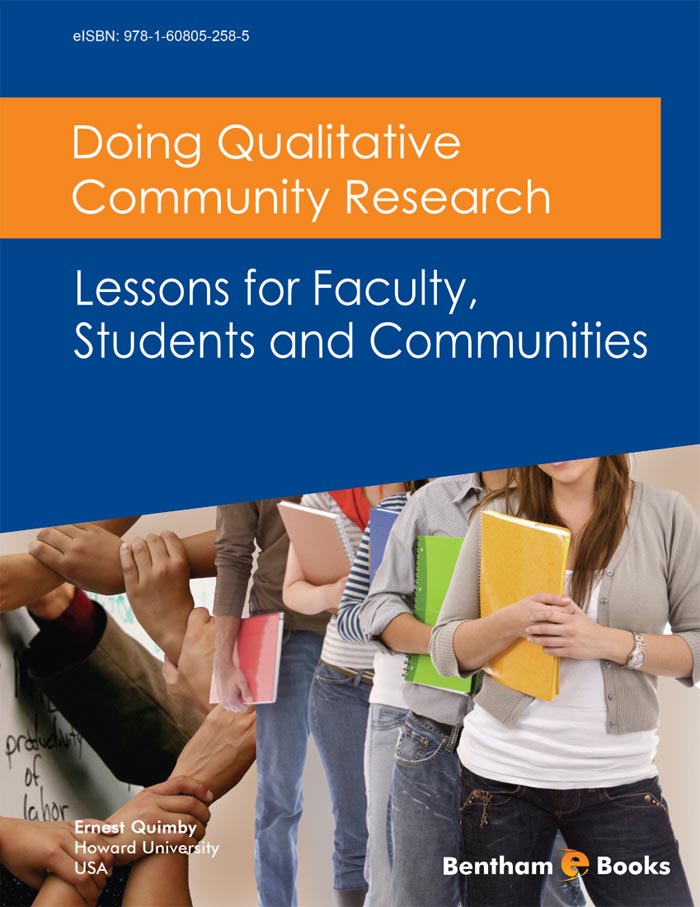Research is about choosing. It requires asking and answering core questions, such as: What do I (or we) want to do, and why? Who will do it, and how? When will it be done, and why? Where will it be done, and why? How will it be done, and why? Research involves more than selecting a series of procedures. One of my aims is to help myself and others make better choices about research.
Preparing this text was almost a transformative experience for me, trained in a positivist, old school model of empirical investigation that only valued observable realities, third person objective detachment and rules borrowed from quantitative approaches. I was taught never to interject myself into the research process and presentation – as if I did not exist and had no bearing on research conceptualization, design, approach and analysis. In a sense, I was conditioned to emulate quantitative perspectives of supposed value-free neutrality, even while protesting that this was not possible. I resisted. Struggling to locate myself within a framework of questioning, if not challenging, dominant perspectives, required me to rethink notions of validity, reliability, authenticity and credibility. Questions kept returning: Who am I? What do I stand for? With whom do I stand? Why? In struggling for an authentic self and a genuine voice, it became clear to me that authentic research is more than conceptual design and technical methodology. I want myself to be different in the world. This ‘being in the world’ meant developing alternative relationships with research participants and viewing them as the ultimate interpreters and validators of their reality.
My book is not an exhaustive description. It contains discussions and suggestions on the meaning and forms of qualitative community research (QCR), classroom instruction, practical application, fieldwork, assessment strategies and resources. It is necessarily abbreviated because qualitative literature is expansive, detailed and comprehensive, comprising an over 50-year-old distinctive approach. Ethnography is emphasized. The book is not menu driven or a how-to conduct research manual, but practical examples and recommendations are provided. It has several premises: Student-centered learning, rather than teacher dominated instruction, is the preferred foundation for pedagogy, curriculum development and educational practices. QCR is best learned by thinking, questioning, reflecting and applying. QCR involves interacting with others. QCR is not merely a strategy.
QCR objectives for teaching, student-learning and community assistance can be accomplished. Multiple approaches are possible, although my text highlights observations and presentations (narrative, oral and visual) by faculty, students and neighborhood residents. Working with a community organization helps to conceptually and practically connect qualitative theory, pedagogy and research methods. Joint presentations are possible that have meaning for participating collaborators. Planning, conducting and reflecting about thematic research are fundamental for instructional coherence and integration. Synergy between faculty, students, residents and course content is enhanced.
This textbook focuses on ethnography, since it is a major form of qualitative research. Many of the examples are related to gentrification, community development and mental health services research. These reflect some of my interests and specializations. However, the book is for anyone interested in qualitative research concepts, methods and uses.
Readers will become familiar with or reacquainted with QCR concepts and methods. Important considerations are summarized for conceptualizing, designing and carrying out qualitative research in community settings. The text is a supplemental synthesis and reinforcement of core issues. Instructors and students can use it for lessons and assignments.
Working in, with and for communities is not easy. Doing meaningful QCR requires identifiable types of consciousness, values, attitudes, skills, information and reflection. Before starting my work, I thought not much more could be written about qualitative research. I was wrong. The field requires continuous reasoning and description.
Among questions answered in my text are the following:
→What is QCR?
→How can QCR be taught, learned, applied and evaluated?
→How can QCR assist instruction, learning and service?
→Should QCR promote social justice?
Ernest Quimby
Howard University

